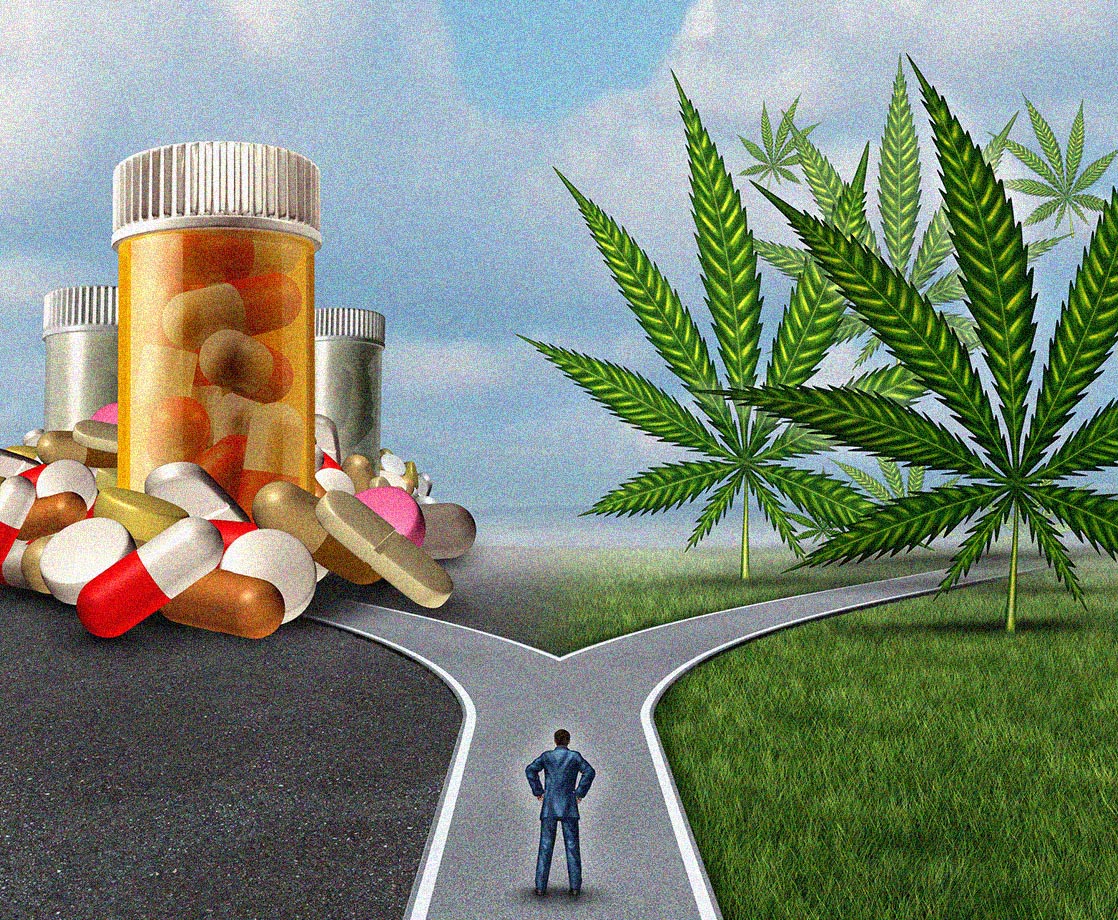As the U.S. continues to grapple with one of the country's deadliest drug crises in history, daily political upheaval in the Trump Administration has largely replaced the opioid epidemic as front page news. With more than 100 Americans passing away from overdoses every single day, the need for nationwide intervention is still more pressing than ever.
But as politicians and police continue to persecute low-level drug offenders and place blame on international cartels, the scientific community has consistently pointed towards cannabis as a solution, while regularly reporting significant decreases in opioid abuse in places where weed is legal.
In the latest study, researchers from the University of California San Diego and Weill Cornell Medical College looked at rates of opioid prescriptions to Medicaid recipients from 1993-2014. Over that 21-year period, the study's authors found that doctors in states with medical marijuana programs prescribed Schedule III opioids nearly 30% less than their counterparts in prohibition states.
The new research, published this week in the peer-reviewed journal Addiction, details not only a significant decrease in opioid prescriptions, but also $7.46 million in annual federal Medicaid savings and $6.54 million in annual health care savings for individual states.
"[If] all the states had legalized medical cannabis by 2014, Medicaid annual spending on opioid prescriptions would be reduced by $17.8 million," the study's authors concluded.
Over the past few years, researchers across the world have published studies supporting marijuana's role as not only an effective (and non-addictive) treatment for pain, but also as a successful tool in weaning drug users off of hard narcotics. Earlier this year, scientists in Israel found that cannabis use by the elderly reduced the amount of pain in study respondents, as well as led to significant decreases in total opioid use. In New Mexico and Illinois, similar studies described weed's near-miraculous ability to replace prescription painkillers.
In the most recent study, though, the UCSD and Cornell authors were clear to note that their research should not be used to proselytize cannabis as a be-all-end-all solution for the opioid epidemic. While other peer-reviewed reports have shown a decrease in overall opioid use in states with medical marijuana, the recently published Addiction paper found significant decreases only in the prescription of Schedule III opioids, but not in opioid drugs labeled Schedule II. For reference, drugs like codeine cough syrup and very minor doses of hydrocodone fall under the Schedule III label, but more notorious full-strength drugs like oxycontin, fentanyl, and hydrocodone pills over 15 milligrams are considered Schedule II.
"Evidence suggested that cannabis provides mild to moderate relief from pain, on par with Codeine, making cannabis a better alternative to Schedule III opioids," the researchers wrote. "Although there is emerging evidence suggesting that cannabis is effective in treating severe pain, no studies compared the analgesic efficacy of the cannabinoids with Schedule II opioids. Due to the concern of cannabis' lack of efficacy on severe pain symptoms, patients prescribed Schedule II opioids might be less likely to switch to medical cannabis and physicians might be less likely to recommend medical cannabis to these patients."
Without continued cannabis law reform, scientific research into the efficacy of cannabis as a painkiller relies only on anecdotal evidence and correlations made through medical records and pharmaceutical statistics.
At least two things are certain, though: America's current attempts to corral the country's addiction crisis through law enforcement are not working, and cannabis is a far safer interdiction option than incarcerating drug addicts.
Follow Zach Harris on Twitter











